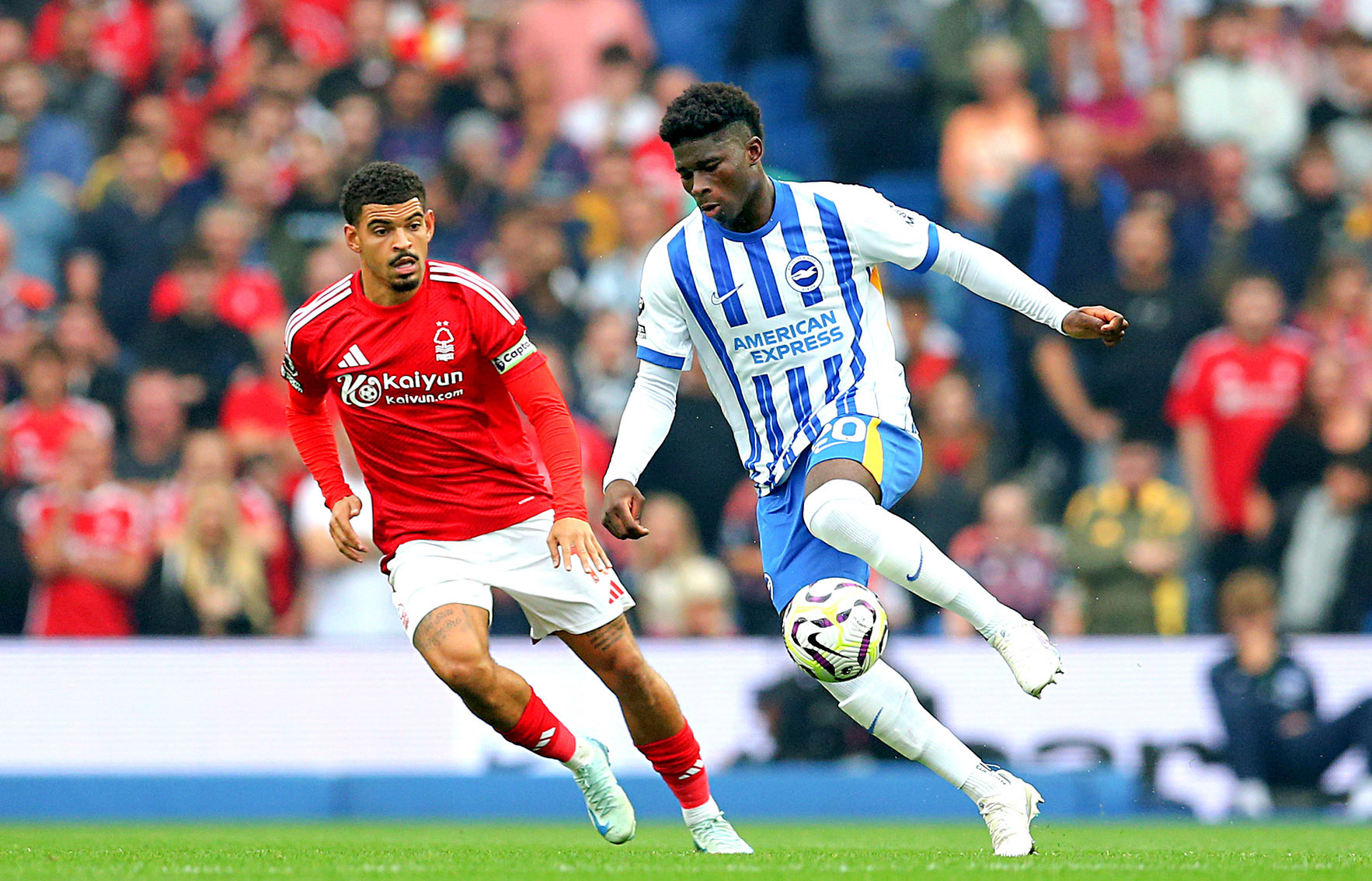The axolotl is a type of salamander that is endemic to Mexico. The tiny amphibian is best known for its ability to regenerate not just lost limbs, but even damaged internal organs such as the heart, as well as parts of the brain, making it the prototype for regeneration.
In soccer terms, English Premier Soccer League club Brighton and Hove Albion seem to possess similar regenerative qualities to the axolotl. The club regularly loses key players to the biggest clubs in the Premier League, yet it has always maintained its ability to compete.
Even when they have lost managers the Seagulls have continued to soar. From the departure of Chris Hughton, who earned the club promotion to the Premier League in 2017, to losing Graham Potter, and, most recently, Italian tactician Roberto de Zerbi.
 Fabian Hurzeler, the manager of Brighton and Hove Albion. (Photo: Henry Browne / Getty Images)
Fabian Hurzeler, the manager of Brighton and Hove Albion. (Photo: Henry Browne / Getty Images)
The latter guided Brighton to their first and only European competition participation, as they finished a club-high sixth and qualified for the Europa League as result.
During their debut season in Europe, they finished at the summit of a group (which consisted of Dutch giants Ajax Amsterdam, France’s Marseille and AEK Athens of Greece) to qualify for the round 16, where the team’s journey ended.
De Zerbi has since departed, being replaced by German Fabian Hürzeler. The 31-year-old (who holds a Uefa Pro Licence) was recruited to by Seagulls’ hierarchy after guiding St Pauli from the second tier to the Bundesliga in his homeland.
Despite his inexperience, he has fitted in seamlessly since arriving in England’s top flight a few months ago. Under his guidance the team has started strongly, finding itself comfortably perched in the top 10 early on in the season. More importantly, the team’s trademark fearless style of play has been evident this season.
Sell and replace
Dating back to July 2021, Brighton have sold a number of their stars to top-flight rivals. Three of those – Marc Cucurella, Robert Sánchez and Moisés Caicedo – have been snapped up by Chelsea.
Also on the list are stars such as Arsenal duo Ben White and Leandro Trossard, as well as Alexis Mac Allister – now at Liverpool. Plus Tottenham Hotspur midfielder Yves Bissouma.
The club has banked staggering fees for these sales, making a massive profit when the fees they initially paid to acquire their stars are contrasted with the amounts they sell them for.
One example is Caicedo, who was bought for €5-million from Ecuadorian side Independiente del Valle. Brighton sold him to Chelsea for €116-million.
Despite their squad being picked apart every season, the team recruits players who align with their now well-established personality as an institution. With the regenerative powers of the axolotl, the club keeps trudging along.
 Jack Hinshelwood of Brighton scores his team's first goal during their Premier League match against Nottingham Forest FC at Amex Stadium on 22 September 2024 in Brighton, England. (Photo: Alex Pantling / Getty Images)
Jack Hinshelwood of Brighton scores his team's first goal during their Premier League match against Nottingham Forest FC at Amex Stadium on 22 September 2024 in Brighton, England. (Photo: Alex Pantling / Getty Images)
But what’s the secret to this continuity, consistency and organic growth that the club has shown? According to the club’s chief executive, Paul Barber, their success lies in the fact that they have fostered a team identity that is not dependent on the presence or absence of any individuals.
“What we don’t want to do is to build a squad for this coach, and this coach leaves, and then you have to build an entirely different squad for the next coach,” Barber said.
“Everything starts in our academy, having the best possible facilities. Then we aim to be smart in the market. We are not a club with unlimited funds. We look for young footballers we can develop here, or on loan to other teams.”

White and Sánchez are products of their youth structures.
“In addition, we look at ‘smaller’ markets in which we can get better prices for players. We have to have a good knowledge of the market and know who we want. We have to be smarter than other teams, and our record in the transfer market suggests we are winning that battle,” said the chief executive.
Barber’s boss and Brighton owner Tony Bloom is the brains behind the club’s strategic approach that saw them announce a staggering profit of €148-million, after tax, in 2023.
The entrepreneur is aided by his background as a professional poker player and avid gambler.
Bloom gambled on Brighton when he took over the club in 2009, when they were still in the third tier of English soccer. Under his stewardship, they have grown in leaps and bounds. DM




 Jack Hinshelwood of Brighton scores his team's first goal during their Premier League match against Nottingham Forest FC at Amex Stadium on 22 September 2024 in Brighton, England. (Photo: Alex Pantling / Getty Images)
Jack Hinshelwood of Brighton scores his team's first goal during their Premier League match against Nottingham Forest FC at Amex Stadium on 22 September 2024 in Brighton, England. (Photo: Alex Pantling / Getty Images) 